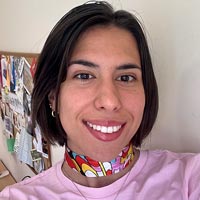Bachelor’s Degree in Applied Modern Languages

Choose between three optional specialization itineraries in a multilingual and multicultural environment
This exclusive Bachelor's Degree provides comprehensive training in language, literature and culture that allows students to specialize in one of the many profiles of the current multilingual and multicultural environment. The degree focuses on three foreign languages and their cultures. After three academic years of general education, students can choose from a wide range of electives to specialize according to their own interests.
These three elective itineraries are:
1) international relations and international trade;
2) computational linguistics and linguistics applied to the teaching of foreign languages;
3) translation. This last itinerary is completed entirely at the University of Essex, where students are able to obtain an MA Translation, Interpreting and Subtitling from the that institution, simultaneously, which allows the graduate to conclude his/her studies with a double degree.
The Bachelor's Degree in Applied Modern Languages allows its graduates to work in multilingual and multicultural environments in the public and private sectors, both in Spain and in other countries. Specifically, the proposed sectors are: language teaching, communication, publishing, cultural industries, linguistic and cultural consultancy, cultural tourism, HR language policy and planning, international relations, linguistic and cultural translation and mediation, and language technology.
In the 21st century, modern applied language studies are increasingly needed and, in the international university field, it is one of the fastest growing fields of study in the Humanities. As globalization expands, there is a growing demand for people with intercultural communication skills who can engage linguistically with a wide audience. A Bachelor's degree in this field offers a competitive advantage to language teachers, interpreters, publishers and people who want to work with language in increasingly technological, multilingual and multicultural societies.
The Bachelor's Degree in Applied Modern Languages arises from the need to research new forms of intercultural or interlinguistic communication in professional fields, applying ethnolinguistic, descriptive and focused observation methodologies that allow a better understanding of social, cultural and linguistic phenomena and factors (pragmatic, grammatical, lexical, among others) that intervene in the communicative processes between people, in the man/machine interaction, and in its application to linguistic engineering.
In addition, all students can optionally study for a Diploma in Chinese Language and Culture accredited by the Center for Language Education and Cooperation of the Ministry of Education, which enhances the already high employability of this Bachelor's Degree.
This exclusive Bachelor's Degree provides comprehensive training in language, literature and culture that allows specialization in one of the various profiles of today's multilingual and multicultural environment. The program focuses on three foreign languages and their cultures. After three general training courses, the student can choose from a wide range of electives to specialize according to their own interests.
Complement your Bachelor’s Degree with a Diploma in Chinese Language and Culture
Curriculum: Applied Modern Languages
BOE No. 70, of March 23, 2011
All our degrees and curricula have been prepared in accordance with the new guidelines set by current legislation, having already been verified by the National Agency for Quality Assessment.
The student must take 240 credits
First year 60 ECTS credits
First Semester 30 ECTS credits- 6 ECTS |
Oral and written communication in English

- 6 ECTS |
General linguistics

- 6 ECTS | French / Spanish FL 1 (French, Spanish)
- 6 ECTS | German / French 1 (German, French)
- 6 ECTS |
Development of professional competences I

Second Semester 30 ECTS credits- 6 ECTS |
English for professional environments

- 6 ECTS |
Cultural studies

- 6 ECTS | French / Spanish FL 2 (French, Spanish)
- 6 ECTS | German / French 2 (German, French)
- 6 ECTS | Development of the Participative and Solidarity Spirit
Second year 60 ECTS credits
First Semester 30 ECTS credits- 6 ECTS |
Language and mind

- 6 ECTS |
English phonetics and phonology

- 6 ECTS | French / Spanish FL 3 (French, Spanish)
- 6 ECTS | German / French 3 (German, French)
- 6 ECTS |
Intercultural communication

Second Semester 30 ECTS credits- 6 ECTS |
Literary theory

- 6 ECTS |
English grammar and syntax

- 6 ECTS | French / Spanish FL 4 (French, Spanish)
- 6 ECTS | German/ French 4 (German, French)
- 6 ECTS |
Development of professional competences II

Third year 60 ECTS credits
First Semester 30 ECTS credits- 6 ECTS |
English semantics and pragmatics

- 6 ECTS | History and culture of French-speaking / Spanish-speaking countries (French-speaking, Spanish-speaking)
- 6 ECTS | Oral and written communication in French / Spanish FL (French, Spanish)
- 6 ECTS | Oral and written communication in German / French (German, French)
- 6 ECTS |
English literature and artistic manifestations

Second Semester 30 ECTS credits- 6 ECTS |
Research methods

- 6 ECTS | French / Spanish literature and artistic manifestations (French, Spanish)
- 6 ECTS | German / French for professional environments (German, French)
- 6 ECTS | History and culture of German / French-speaking countries (German, French)
- 6 ECTS | Elective 1
Fourth year 60 ECTS credits
First Semester 30 ECTS credits- 6 ECTS |
Development of professional competences III

- 6 ECTS | Elective 2
- 6 ECTS | Elective 3
- 6 ECTS | Elective 4
- 6 ECTS | Elective 5
Second Semester 30 ECTS credits- 6 ECTS | Elective 6
- 6 ECTS | Elective 7
- 6 ECTS | Elective 8
- 6 ECTS | Internship in company
- 6 ECTS |
Final research project

More information on these subjects
This project involves the student carrying out research tasks on different subjects, under the supervision of one or several professors of the Department and, occasionally, professionals from the business world. For this, the student has the possibility to choose a project from among those offered.
Previous Curriculum: Modern Languages
First year 60 ECTS credits
First Semester 30 ECTS- 6 ECTS | Uses and Functions I Language A

- 6 ECTS | Oral and Written Communication Strategies I, Language A

- 6 ECTS | Language BI: Spanish / Language BI: German / Language BI: French)
- 6 ECTS | Development of participative and solidarity spirit
- 6 ECTS | Optative 1
Second Semester 30 ECTS credits- 6 ECTS | Uses and Functions II Language A

- 6 ECTS | Oral and Written Communication Strategies II Language A

- 6 ECTS | Language BII (German or French)
- 6 ECTS | Competence Development Seminar I

- 6 ECTS | Optative 2
Second year 60 ECTS credits
First Semester 30 ECTS- 6 ECTS | Contemporary World

- 6 ECTS | Language BIII (Spanish, German or French)
- 6 ECTS | Advanced Grammar Language A

- 6 ECTS | Language CI (German, French, Chinese)
- 6 ECTS | Optative 3
Second Semester 30 ECTS- 6 ECTS | Intercultural Communication

- 6 ECTS | Language BIV (German o French)
- 6 ECTS | Language for Professional Purposes

- 6 ECTS | Language CII (German, French, Chinese)
- 6 ECTS | Optative 4
Third year 60 ECTS credits
First Semester 30 ECTS- 6 ECTS | Introduction to Linguistic Studies
- 6 ECTS | Language CIII (German, French y Chinese)
- 6 ECTS | Language and Literature Language A

- 6 ECTS | Optative 5
- 6 ECTS | Optative 6
Second Semester 30 ECTS- 6 ECTS | Studies of Language A

- 6 ECTS | Introduction to Literary Theory
- 6 ECTS | Competence Development Seminar II

- 6 ECTS | Literary Genres Language A

- 6 ECTS | Optative 7
Fourth year 60 ECTS
First Semester 24 ECTS- 6 ECTS | Teaching of Second Languages

- 6 ECTS | Competence Development Seminar III

- 6 ECTS | Optative 8
- 6 ECTS | Optative 9
Second Semester 36 ECTS- 18 ECTS | Eval. of Development of Company Competences

- 18 ECTS | Final Research Project

More info about this subjects
This project involves carrying out research tasks in different subjects by the student under the advice of one or several professors of the Department and, occasionally, professionals from the business world. For this, the student has the possibility to choose a project from among those offered.
Professors
| Profesores Professors | Porcentaje de Doctores Percentage of PhD holders |
| 33 | 85% |
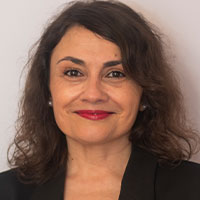 Cristina Casado Presa
Directora del Grado en Lenguas Modernas
Director of Bachelor's Degree in Modern Languages
Cristina Casado Presa
Directora del Grado en Lenguas Modernas
Director of Bachelor's Degree in Modern Languages
 Maria Cecilia Ainciburu
Profesora
Professor
Maria Cecilia Ainciburu
Profesora
Professor
 Zeina Alhmoud
Profesora
Professor
Zeina Alhmoud
Profesora
Professor
 Luca Bazzi
Profesor
Professor
Luca Bazzi
Profesor
Professor
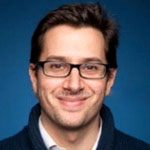 Xavier Bocquier
Profesor
Professor
Xavier Bocquier
Profesor
Professor
 Kris Buyse
Profesor
Professor
Kris Buyse
Profesor
Professor
 Luis Cáceres Cantero
Profesor
Professor
Luis Cáceres Cantero
Profesor
Professor
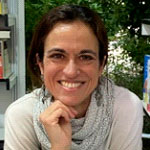 Jacinta Cremades
Profesora
Professor
Jacinta Cremades
Profesora
Professor
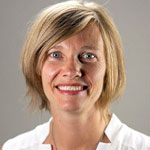 Alice Foucart
Profesora
Professor
Alice Foucart
Profesora
Professor
 Daniel Fuentes Casado
Profesor
Professor
Daniel Fuentes Casado
Profesor
Professor
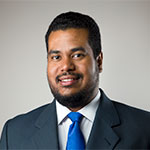 Luis Armando García Segura
Profesor
Professor
Luis Armando García Segura
Profesor
Professor
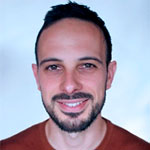 Jorge González Alonso
Profesor
Professor
Jorge González Alonso
Profesor
Professor
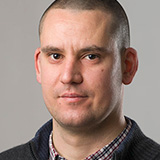 Andrés Guilló Suethe
Profesor
Professor
Andrés Guilló Suethe
Profesor
Professor
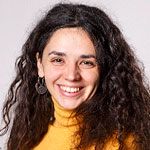 Cristina Herrero
Profesora
Professor
Cristina Herrero
Profesora
Professor
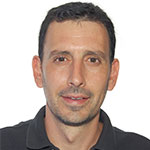 Fernando Herrero
Profesor
Professor
Fernando Herrero
Profesor
Professor
 Stephen Jenkins
Profesor
Professor
Stephen Jenkins
Profesor
Professor
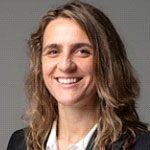 María Cruz La Chica Delgado
Profesora
Professor
María Cruz La Chica Delgado
Profesora
Professor
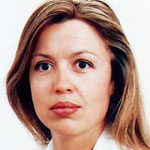 Adriana Lastičová
Profesora
Professor
Adriana Lastičová
Profesora
Professor
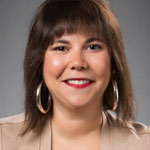 Alicia Luque
Profesora
Professor
Alicia Luque
Profesora
Professor
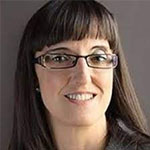 Susana Martín Leralta
Decana de la Facultad de Lenguas y Educación
Dean of School of Language and Education
Susana Martín Leralta
Decana de la Facultad de Lenguas y Educación
Dean of School of Language and Education
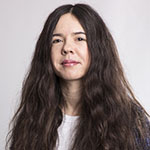 Irini Mavrou
Profesora
Professor
Irini Mavrou
Profesora
Professor
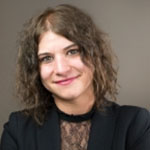 Ocarina Masid Blanco
Profesora
Professor
Ocarina Masid Blanco
Profesora
Professor
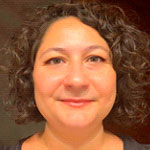 Miriam Muccione
Profesora
Professor
Miriam Muccione
Profesora
Professor
 Juana Muñoz Linares
Profesora
Professor
Juana Muñoz Linares
Profesora
Professor
 Li Ning
Profesora
Professor
Li Ning
Profesora
Professor
 María Ortiz Jiménez
Profesora
Professor
María Ortiz Jiménez
Profesora
Professor
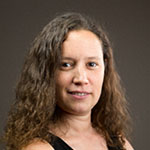 Margarita Planelles
Profesora
Professor
Margarita Planelles
Profesora
Professor
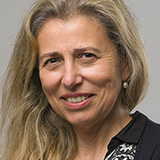 Ángeles Quevedo Atienza
Profesora
Professor
Ángeles Quevedo Atienza
Profesora
Professor
 Amaya Rioz
Profesora
Professor
Amaya Rioz
Profesora
Professor
 Teresa Simón Cabodevilla
Profesora
Professor
Teresa Simón Cabodevilla
Profesora
Professor
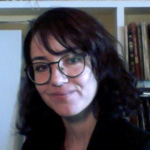 Alicia Solà Prado
Profesora
Professor
Alicia Solà Prado
Profesora
Professor
 Sabrina Souni
Profesora
Professor
Sabrina Souni
Profesora
Professor
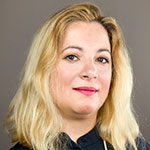 Maite Uribarri
Profesora
Professor
Maite Uribarri
Profesora
Professor
Tutores de la Formación
Tutors
| Tutores Tutors | Porcentaje de Doctores Percentage of PhD holders |
| 4 | 100% |
 Zeina Alhmoud
Tutora 1LMI
Tutor of 1LMI
Zeina Alhmoud
Tutora 1LMI
Tutor of 1LMI
 Cristina Herrero
Tutora 2LMI
Tutor of 2LMI
Cristina Herrero
Tutora 2LMI
Tutor of 2LMI
 María Ortiz Jiménez
Tutora 3LMI
Tutor of 3LMI
María Ortiz Jiménez
Tutora 3LMI
Tutor of 3LMI
 Leticia Quesada Vázquez
Tutora 4LMI
Tutor of 4LMI
Cerrar Profesores
Close Professors
Leticia Quesada Vázquez
Tutora 4LMI
Tutor of 4LMI
Cerrar Profesores
Close Professors
More Academic Information
Official Degree:Bachelor's Degree in Applied Modern Languages
Center responsible:School of Language and Education
Branch of knowledge: Arts and Humanities
Available places: - Classroom attendance: 45
- Online: 50
Type of Education: Classroom attendance / Online
Academic year in which it was implemented: 2022
Languages: Spanish, English, French and German
University Services: [+info]
Competences
Basic Competences- BC1 Possess and understand knowledge in an area of study that starts from the base of general secondary education, and is usually found at a level that, although supported by advanced textbooks, also includes some aspects that involve knowledge from the forefront of their field of study.
- BC2 Apply their knowledge to their work or vocation in a professional way, and have the competences that are usually demonstrated through the elaboration and defense of arguments and the solving of problems within their area of study.
- BC3 Gather and interpret relevant data (normally within their area of study) to make judgments that include reflections on relevant issues of a social, scientific or ethical nature.
- BC4 Transmit information, ideas, problems and solutions to both a specialized and non-specialized public.
- BC5 Develop the necessary learning skills to undertake further studies with a high degree of autonomy.
- GC1 Identify the main theoretical contributions in the field of linguistic and literary studies.
- GC2 Acquire basic scientific education applied to modern foreign languages and their professional practices.
- GC3 Develop argumentation and exposition strategies, orally and in writing, within the field of study of Applied Modern Languages.
- GC4 Know fundamental issues about the nature of language in order to understand its relationship with culture, society and other humanistic disciplines.
- GC5 Understand, evaluate and analyze messages in different supports in the languages studied, framed in different sociocultural contexts.
- GC6 Use new information and knowledge technologies for the organization, planning and development of academic and professional activities in the field of Applied Modern Languages.
- GC7 Recognize, document, evaluate and delve into linguistic, literary and cultural diversity in the current context, taking into account its origins and future perspectives.
- GC8 Develop the ability for linguistic mediation to achieve understanding, acceptance of diversity and its value in intercultural communication.
- GC9 Use search tools for documentary resources for the study of modern foreign languages and handle the sources of their corresponding literatures.
- SC1 Develop the skills to communicate autonomously and effectively in two modern foreign languages and instrumentally in a third language.
- SC2 Know the theoretical and practical description of the chosen languages and their literatures in order to apply it to their academic and professional use with a different degree of instrumental mastery.
- SC3 Effectively apply techniques and resources related to linguistic mediation, language teaching, the improvement of communication mediated by technology and the resolution of intercultural conflicts in professional environments.
- SC4 Describe the structure of the languages studied at different levels (phonological, lexical, morphological, syntactic, semantic and pragmatic-discursive), identifying the different registers.
- SC5 Know the pragmatic rules of the languages studied in order to properly interpret oral and written messages, preventing linguistic and intercultural misunderstandings.
- SC6 Understand the complexity of linguistic facts and literary works, appreciate their aesthetic values and assess their significance in the sociopolitical context in which they are framed.
- SC7 Develop, present and defend an original work, a synthesis of the skills acquired in the Bachelor's Degree.
- SC8 Know and know how to apply basic concepts, methods and terminology of linguistics, literature and language acquisition.
- SC9 Apply knowledge of linguistics both in its synchronic and diachronic aspects.
- SC10 Recognize the temporal, spatial, social and situational varieties of the languages studied, to interpret texts of different types and to adjust to them in communicative exchanges.
- SC11 Know the fundamentals of technological applications for natural language processing, improving communication, organization and access to information.
- SC12 Identify and understand the elements that define and articulate linguistic and literary studies as scientific disciplines and recognize their interdisciplinary nature.
- SC13 Know the current geopolitical and social situation of the countries of the languages studied from a historical perspective.
- SC14 Understand, know, analyze, compare and evaluate different psycholinguistic and cognitive theories of language acquisition and different methodologies and approaches for teaching languages.
Calendar
Academic calendarSchedules
First and second semester schedulesAdmission
Admission profileThose interested in studying and or University must have the following profile. They will be students of the baccalaureate of Humanities and Social Sciences, with good grades, with a special inclination towards modern languages, literature, humanities and culture in general. Specifically, the student who chooses Applied Modern Languages must have:
- Interest in knowledge, in general.
- Respect for culture.
- Intellectual curiosity for the acquisition of new knowledge.
- Interest in acquiring international experience and broadening one's own vision of the world.
- Interest and sensitivity for literature, love of reading.
- Interest in communicating in several languages and in learning about the cultures associated with these languages.
- Concern and curiosity about the manifestations of contemporary art, literature and culture and, in general, about the humanities.
- Interest in the current socioeconomic and political environment.
- Interest in becoming professionally competent.
- Respect for human rights and equality between people.
- Sensitivity towards people with disabilities.
- A degree of proficiency in English equivalent to, at least, the B2 level of the Common European Framework of Reference for the Learning, Teaching and Assessment of Languages will be an access requirement, since it is the lingua franca of the degree.
With regard to their admission competences, the following will be of value:
- Basic skills to express themselves orally and in writing in the language chosen as the main language.
- Basic knowledge about art and culture in its different manifestations and contexts.
- Ability for empathy and acceptance of cultural diversity.
- Ability to appreciate linguistic and cultural diversity.
- Sensitivity towards the humanities in general.
- Aptitudes and conceptual, linguistic and perceptive abilities linked to this area of knowledge.
- Ability to acquire new knowledge, not limited only to that related to the subjects of this degree.
- Ability to be part of teams, to collaborate on different projects with other people, as well as to interact in different linguistic and cultural contexts.
The access routes to the Bachelor's Degree in Applied Modern Languages are described below, in addition, the Antonio de Nebrija University will publish on its website the offer of available places for the first year of the Bachelor's Degree in Applied Modern Languages:
- Students who have a baccalaureate degree and have passed the University Access Tests may apply for admission, in accordance with the provisions of Royal Decree 1892/2008, of November 14, which regulates the access conditions to official university teachings of Bachelor's Degrees.
-
Also, and in accordance with the provisions of RD 412/2014, the following students may apply for admission to the university:
- a) Graduates in European Baccalaureate or International Baccalaureate.
- b) Students who have Baccalaureate degrees, diplomas or studies from educational systems of Member States of the European Union, or other States with which international agreements applicable in this regard have been signed, on a reciprocal basis.
- c) Students who have degrees, diplomas or studies homologated to the Baccalaureate degree of the Spanish Educational System, obtained or carried out in educational systems of States that are not members of the European Union with which no international agreements have been signed in reciprocity for the recognition of the Baccalaureate degree, notwithstanding the provisions of article 4 of RD 412/2014.
- d) Students who have official degree of Senior Technician in Vocational Formation, of Senior Technician in Plastic Arts and Design, or of Senior Sports Technician belonging to the Spanish Educational System, or degrees, diplomas or studies declared equivalent or homologated to said degrees, without prejudice of the provisions in article 4 of RD 412/2014.
- e) Students who have degrees, diplomas or studies, other than those equivalent to Baccalaureate degrees, Senior Technician in Vocational Training, Senior Technician in Plastic Arts and Design, or Senior Sports Technician of the Spanish Educational System, obtained or carried out in a member State of the European Union, or in other States with which international agreements have been signed that are applicable in this regard, on a reciprocal basis, when said students meet the academic requirements demanded in said Member State to access its Universities.
- f) People who have passed the university entrance exam for people over 25 years old.
- g) People who have passed the access test for official Bachelor's degree studies for people over 40 years old, through accreditation of work or professional experience. The procedures for admission through this route are reflected in the “POA_9 Access procedure over people over 40 years old”
- h) People who have passed the university entrance exam for people over 45 years old.
- i) Students who have an official Bachelor's, Master's or equivalent degree.
- j) Students who have an official Associate's Degree, or a degree as Technical Architect, Technical Engineer, Undergraduate, Architect, Engineer, corresponding to the previous ordinance of university education, or an equivalent degree.
- k) Students who have taken partial foreign or Spanish university studies, or who have finished foreign university studies but have not obtained their homologation in Spain and wish to continue studies at a Spanish university. In this case, it will be an indispensable requirement that Nebrija University have recognized at least 30 ECTS credits.
- l) Students who were able to access the university according to regulations of the Spanish Educational System prior to Organic Law 8/2013, of December 9.
-
m) According to Order ECD/1941/2016, of December 22, its sole transitory provision establishes that it will not be necessary to pass the Baccalaureate evaluation test to access University studies in the following cases:
- students who join a Baccalaureate course of the educational system defined by Organic Law 8/2013, of December 9, and having not passed Baccalaureate subjects from the curriculum prior to its implementation and take said subjects according to the curriculum of the previous educational system.
- students who obtained the Baccalaureate degree in the 2015-2016 academic year and did not access the University at the end of said academic year.
In both cases, and when these students do not take the test, the grade to access official university degree studies will be the final grade obtained in the Baccalaureate courses.
- In the case of students with special educational needs derived from disabilities, the need for possible curricular adaptations, itineraries or alternative studies will be assessed.
- In the case of non-Spanish-speaking students who wish to be admitted to the Bachelor's Degree in Applied Modern Languages and who wish to choose French as language B, they will be informed that there are a series of optional subjects in the 4th year that will require a B2 level of Spanish, so that they can plan their acquisition of Spanish in the case of wishing to opt for these elective subjects. Similarly, if students do not reach a B2 level of Spanish, they could complete their curriculum with the electives available in English.
At the Antonio de Nebrija University, the admission procedures established by university legislation will be carried out with particular reference to the guiding principles of accessing Spanish universities: equality, merit, ability, universal accessibility and adapting to the criteria of the European Higher Education Area.
Methods and deadlines for submitting admission applications.
In order to apply for admission to any official university Bachelor's degree, it will be necessary to complete the corresponding admission application through the University website, or request it at any of the university campuses within the deadlines established by the Department of University Development.
[+ Info]
Documentation necessary for admission to Bachelor's degree studies.
-
a) Students with University Entrance Exams (from Baccalaureate and university entrance exams for people over 25yo): Those who have attended the University Entrance Exams must bring:
- Copy of DNI or accrediting document.
- Report card with the grades of the University Entrance Exams.
- Personal academic record with the grades obtained in baccalaureate.
- File Transfer Fees sealed by the University Secretary where the University Entrance Exam (Selectividad) was taken.
-
b) Students who have a degree, diploma or studies equivalent to the Baccalaureate degree in educational systems from Member States of the European Union or from other States with which applicable international agreements have been signed, on a reciprocal basis. Graduates of European Baccalaureate or International Baccalaureate.
- Photocopy of Passport or accrediting document.
- Credentials for compliance with the requirements issued by the UNED or by the specified entity.
- Report card with grades obtained in the University Entrance Exams, if applicable.
- Accreditation of a B2 level in English, language in which the lectures will be taught throughout the degree.
-
c) Students from Advanced Vocational Training, Second Degree Vocational Training: These students must provide the following:
- Copy of the DNI or accrediting document.
- Personal academic record with the grades obtained and the final numerical grade.
- Diploma or the receipt of having paid the issuing fee of the diploma.
- If applicable, document stating the result of the Specific Phase of the University Entrance Exams.
-
d) University Graduates::
- Photocopy of the DNI or accrediting document.
- Academic record with the grades of each of the subjects taken and the final grade average.
- Diploma or receipt of having paid the issuing fee for the diploma.
In the case of students with validated foreign degrees, they must provide the following documentation:
- Photocopy of Passport, DNI or accrediting document.
- Homologation of the university degree.
- Equivalences of grade averages of studies taken in foreign centers.
- Accreditation of a B2 level in English, language in which the lectures will be taught throughout the degree.
-
e) Students from previous educational arrangements who have not attended the general phase of University Entrance Exams, regulated in Royal Decree 1892/2008, of November 14:
- Students from COU (college preparation courses) prior to the 1974-75 academic year, and students who have passed the Higher Baccalaureate with a state exam: photocopy of DNI, grade book and the grade card of the specific phase of the University Entrance Exams, if applicable.
- Students who have passed the Higher Baccalaureate, PREU and the Maturity Test: photocopy of DNI, grade book, Maturity Test card and the grade card of the specific phase of the University Entrance Tests, if applicable.
-
f) Students with partial recognition of foreign studies:
These students must submit the following documentation, officially translated and legalized, if applicable:- Recognition request application form.
- Photocopy of Passport or accrediting document.
- Academic record accrediting the level and type of studies carried out, issued by the corresponding official Center, stating, at least, the following data: subjects taken, the credits or hourly load of each, grade and table or scale of grades.
- Curriculum or table of subjects of the degree to which the subjects to be recognized belong, with express indication of the duration of those studies in academic years and the subjects that comprise it, and with the original seal of the Center of origin, or failing that, the documentation requested in the credit recognition procedure.
- Subject programs, with details of the content and scope (hours and credits) with which they have been taken, and with the original stamp of the Center of origin or, failing that, the documentation requested in the credit recognition procedure.
- Accreditation of a B2 level in English, language in which the lectures will be taught throughout the degree.
- Equivalences of average grades of studies carried out in foreign centers.
-
i) Students requesting admission due to change of university and/or studies. Students from other universities must submit the following documentation:
- Photocopy of the DNI or accrediting document.
- Copies sealed by the university of origin of the official content and competence programs, or teaching guides, of the different subjects passed or, failing that, the documentation requested in the credit recognition procedure
- Personal academic record of university studies started with an average grade of 0-10, based on the provisions of Royal Decree 1125/2003 (BOE 18/09/2003).
- Photocopy of the BOE where the degree's curriculum is published.
-
j) Access to the University for people over 45 yo.
- Photocopy of the DNI or accrediting document.
- Certificate accrediting the passing of the Entrance Exam for those over 45 years old (test carried out at Nebrija University)
-
k) Access to the University for people over 40 yo.
- Copy of the DNI or accrediting document.
- Positive report after the assessment at Nebrija University of all the requirements established in Art. 16 RD 412/2014.
Only those candidates who have submitted the required documentation within the deadlines established by the Admissions Department will be processed. In addition, the student will be asked for all the additional information that was deemed appropriate in order to know the candidate's suitability for the Bachelor's Degree.
For the purposes of pre-admission and admission, the evaluation of the candidate will be made using a scale of 0 to 10 points, taking into account the following criteria and percentages:
- Academic record of the student's route of origin: 60%
- Multiple-choice psychotechnical test: Evaluation 5%
This test consists of a personality assessment test that explores the emotional, intellectual, social, and norms and values areas of each candidate for the Bachelor's Degree in Applied Modern Languages at the Antonio de Nebrija University. - Specific knowledge test on the Bachelor’s Degree in Applied Modern Languages. Evaluation 10%.
This is a multiple-choice test, and consists mainly of specific contents of some of the main areas of general knowledge (Arts and Humanities) that are going to be studied in the degree chosen by the candidate, in addition to other elements common to all degrees. This specific test may also be taken in person or online. - Personal interview. Evaluation 25 %.
Carried out by the person in charge of the Academic Program. This interview is used to verify the suitability of the candidate and his/her profile in accordance with this degree. The aim is to determine if the candidate has sufficient motivation, training and knowledge, skills, aptitudes, communication skills, and future interests necessary to be admitted as a student in the Bachelor's Degree in Applied Modern Languages at the Antonio de Nebrija University. This personal interview may be carried out in person or by videoconference.
The Admissions Committee will meet when necessary and will communicate the result of the admission to the candidate through email, telephone and letter so that they can proceed with their enrollment.
Once the student has been admitted, they will proceed to enroll, which consists of the following phases:
Place reservation
Candidates must reserve a place. This economic pre-enrollment guarantees the candidate's place at the University. This will not be returned except for students who are only conditionally admitted, or do not meet the legal access requirements, or for a justified medical cause.
Enrollment
Pre-enrolled candidates who wish to formalize their academic enrollment at the University must, within the indicated deadlines, follow these steps:
1.- Submit documentation: prove that they meet the requirements established by Spanish university legislation to be able to start university studies.
2.- Formalize the enrolment process online: The self-enrollment service on the Nebrija website allows admitted students to carry out all the academic, economic and administrative procedures within the established deadlines. To do this, they will receive, together with their letter of admission, the access code and personal password necessary to be able to carry out their self-enrollment. Once the self-enrollment has been formalized, the candidate acquires the status of Nebrija University student.
If the number of applicants exceeds the number of places offered, the student's academic record (grade average) will be taken as admission criteria.
Therefore, anyone interested in accessing the studies of the Bachelor's Degree in Applied Modern Languages must submit, without exception, their academic record, since it will be its grade average that decides their admission to the Bachelor's Degree in Applied Modern Languages, if the number of applications exceeds the number of places offered.
Once all places are full, in the event that there are more candidates interested in accessing the degree, they will be placed on a waiting list in case of any possible vacancies that may arise before the start of the academic year, and will be subject to the admission and selection criteria detailed in point 4 used for the rest of applicants.
Employability
Career Opportunities
Areas and professional sectors where the graduate in Applied Modern Languages can develop their professional career:
- Intercultural mediation and international cooperation.
- Translation and interpretation.
- Computational linguistics.
- language teaching.
- Cultural management and publishing sector.
- Tourism and public relations.
- Content creation and writing.
- International Trade.
Employability recognized in the Rankings
The commitment of Nebrija University to the academic requirement, training in leading companies and institutions, innovation in multidisciplinary programs and international projection, places the University in the top positions of the most important rankings.
The International Ranking QS Stars awards Nebrija University the maximum score in the quality and satisfaction of students in teaching, employability of the graduates and the internationalization of the institution.
The national rankings also recognize Nebrija University as the first Spanish university in teaching and second in employability, highlighting its performance in research, knowledge transfer and internationalization.
The Bologna Declaration formalized the principles on which the European Higher Education Area should be based: quality, mobility, diversity, competitiveness and employment growth.
From this, Nebrija stands as an academic model of reference, educating students with excellent individual behavior, interaction with their environment and motivated by and for constant and continuous training. The Nebrija Institute of Professional Skills works every day to achieve the differentiation of our students through the development of attitudes and skills.
The main objective is for students to achieve the best of themselves through the development and empowerment of their personal skills and resources through personal self-knowledge.
In addition, some of the professional skills that are worked on within the three seminars are those related to interpersonal skills and active communication skills and negotiation, indispensable for our students to know how to transmit ideas, to argue them, to provide information and opinions in an adequate, clear and convincing way.
Within what will be their work performance, other aspects such as teamwork, conflict resolution and project management ability will be worked on.
In the third block, skills worked on are those aimed at increasing the student's employability. They will work with tools and techniques for job searching, and perform tasks that achieve in the student a greater use of their personal skills.
For all this we have currently active experts in selection of people, professionals dedicated to personal and professional training and professionals dedicated to the world of communication and the arts.
In this way, and in a complementary way to his/her specific training, we help the student create a differentiating pattern in the social and business environment in which he/she will be immersed when he/she finishes his/her studies.
International
The International Mobility Office of Nebrija University makes a constant effort to monitor the agreements with the most prestigious universities.
Students can study at one of the following foreign universities:
Note: The information published here is for guidance only and may be subject to modification.
University life in Applied Modern Languages
Visit all the Activities of the School of Language and Education
XXIII Aula Plurilingüe
En esta edición, pretendemos poner el foco en la importancia de la transmisión de aspectos culturales en el aula de lenguas extranjeras, esencial para poder hablar y transmitir conocimiento en otro idioma.
[Leer más]
IV Nebrija International Congress on Linguistics Applied to Language Teaching
The Faculty of Languages and Education organizes this congress that serves as a meeting point for researchers and teachers, both experts and novices, to have the opportunity to share the results of their studies and didactic experiences.
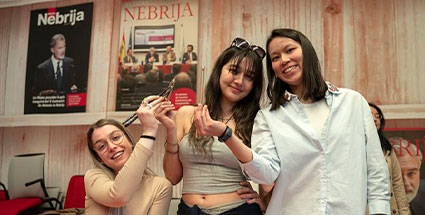
The Multilingual Classroom spreads the richness and diversity of cultures and their languages in a fun way
Under the name of Multilingual Classroom: Do you speak my culture? Language, tradition and society in the language classroom, the students, supported by their professors, organized and participated in a playful way in a range of original activities that reflected the cultural diversity and curiosity to learn languages of which Nebrija University can boast.
[Read more]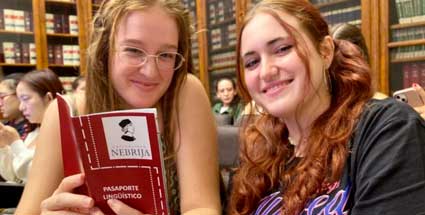
Language passport
Get to know Madrid and practice the languages you study. This is the objective of the first "Language Passport" contest for undergraduate students, where they will have to overcome challenges and tests to fill out their passport.
[Read more]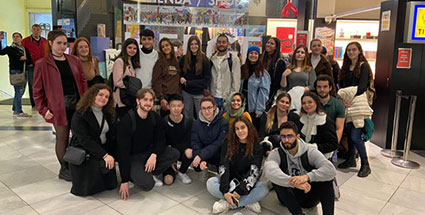
Students of the Degree visit the 'Hergé' exhibition
The students of the Bachelor's Degree in Applied Modern Languages had an enriching artistic experience in their visit to the 'Hergé' exhibition, at the Círculo de Bellas Artes in Madrid. There they were able to view the work of the author of Tintin and French-speaking culture.
[Read more]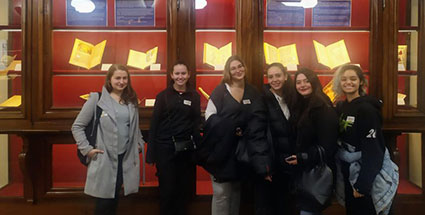
The students of the Bachelor's Degree discover the wonders of the National Library
The students of Language and Literature of the Bachelor's Degree in Applied Modern Languages enjoyed the wonders offered by the National Library of Spain and took a tour of its many manuscripts, incunabula and printed editions.
[Read more]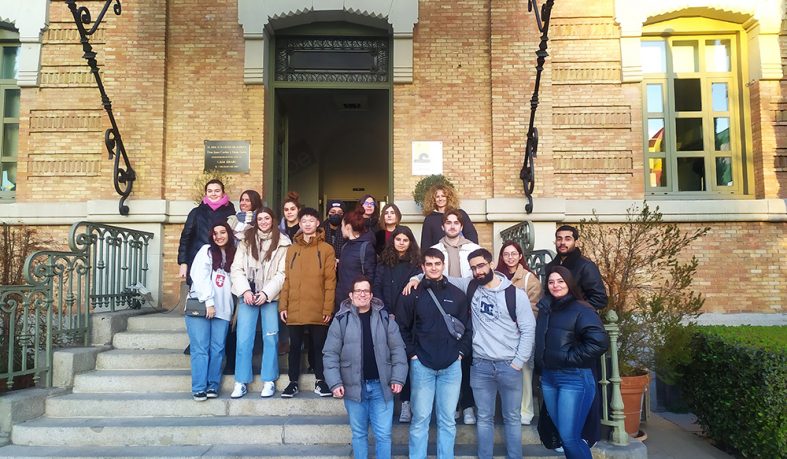
How to bring Arab culture closer to the student of Arabic as a second language
Rowaida Solaiman Khalil, professor at Casa Árabe's Arabic Language Center, offered Nebrija University's students of the Bachelor's Degree in Applied Modern Languages a friendly, dynamic and enriching lecture full of resources and methods that brought Arab culture closer for those who study Arabic as a second language.
[Read more]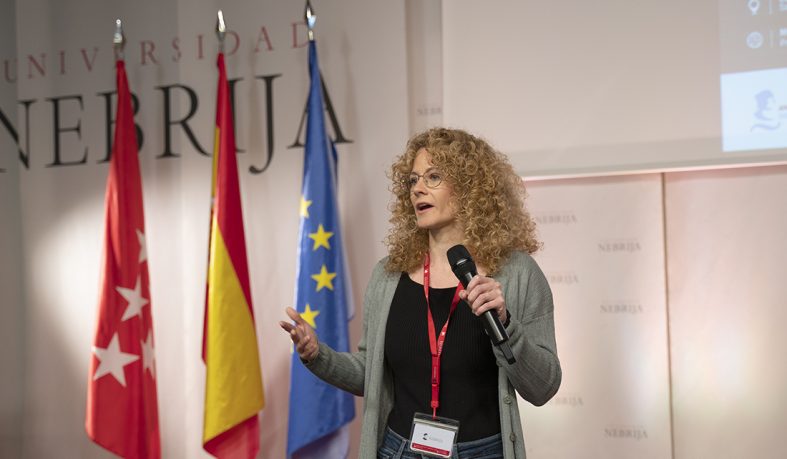
Leticia Quesada wins the International Association of Teachers of English as a Foreign Language Award
Quesada has won the award with an activity he designed to teach English intonation to 60 Hispanic and Catalan-speaking university students in virtual mode during the pandemic.
[Read more]The Podcasts of the Bachelor's Degree in Applied Modern Languages: Communicating Science
During the Science Week of the School of Languages and Education, the students of the Bachelor's Degree invite us to learn about and discuss the topics they covered. Some podcasts are specially designed for our international students and were able to be recorded in the radio studio of the School of Communication and Arts. This is one more example of Nebrija's transversal nature.
-
Neuroscience and Education: from the laboratory to the classroom (in English)
Activity in which students were able to go through the different techniques that are available in the laboratory to study cognitive processes. -
'Your thesis in three minutes' Contest (in English)
First edition that aims to promote and disseminate the work developed by young researchers in Cognitive Sciences, Languages and Education.
-
Language and Tongues (in English)
Lecture by the linguist Itziar Laka on the articulation of language, the differences with language and its processing by users. -
8th Conference on Language and Migration (in English)
Conference organized by the Nebrija-Santander Global Chair of Spanish as a Language of Migrants and Refugees.

